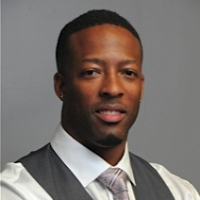 Stafford Felony Lawyers, Connecticut
Stafford Felony Lawyers, Connecticut
Sponsored Law Firm
-
 x
x

Click For More Info:
-
Barry, Barall & Spinella, LLC
989 Main St Manchester, CT 06040» view mapCriminal Defense Law Your Future Matters To Us
At Barry, Barall & Spinella, LLC, our only goal is to protect your best interests. We are accomplished attorneys whose focus is handling criminal defense & personal injury claims.
800-998-0430
Not enough matches for Stafford Felony lawyer.
Below are all Stafford Criminal lawyers.
Sponsored Lawyers
1-10 of 17 matches
Car Accident, DUI-DWI, Slip & Fall Accident
Donald is orginally from Chicago, Illinois. He is 2003 graduate of Mississippi State University (MSU). He received his Masters in Public Policy Administration from MSU in 2005, and went on to earn his law degree from the University of Wyoming College of Law in 2009. Donald's practice areas are criminal defense, including felonies, misdemeanors, DWIs and other motor vehicle violations. Donald is also contract public defender for the state of Connecticut, where he handles child support contempt defense and modifications. He also has experience handling personal injury matters, including motor vehicle accidents and slip-and-falls. He is admitted to practice before the Connecticut state courts as well as the U.S. District Court, District of Connecticut, and Connecticut's Bankruptcy Courts. Donald is a member of the Cawford Bar Association, and Connecticut Bar Association. Donald's hybrid barbershop/ law office, "Legal Cuts" has been featured by several news organizations including the Connecticut Law Tribune, NPR (radio), The American Bar Association, and The New Britain Herald.
(more)Accident & Injury, Estate, Divorce & Family Law, Criminal, Child Custody
John M. Loconsolo is a practicing lawyer in the state of Connecticut handling personal injury, criminal, family law, and estate cases.
(more)Criminal, Accident & Injury, Estate
Ryan P. Barry received his B.A., with honors, from the University of Connecticut and his J.D. from the University of Connecticut School of Law. During law school, Attorney Barry worked as a Judicial Extern for United States District Court Judge Dominic J. Squatrito. He was also selected to membership on The Connecticut Law Review and is the author of "ERISA's Purpose: The Conveyance of Information from Trustee to Beneficiary," 31 Conn. L. Rev. 735 (1999). Attorney Barry is admitted to practice law in the State of Connecticut, the United States District Court for the District of Connecticut and the U.S. Court of Appeals for the 2nd Circuit. He is a member of the Connecticut Bar Association, the Manchester Bar Association, the American Bar Association, the American Association for Justice, the Connecticut Criminal Defense Lawyers Association, and the Connecticut Association of Municipal Attorneys. In July 2018, Attorney Barry was appointed by the judges of the Superior Court to serve for a 3-year term on the Statewide Grievance Committee. Attorney Barry is also a Life Fellow of the Connecticut Bar Foundation, membership for which is by invitation only, and is evidence of professional distinction. He has been named to Connecticut Super Lawyers List since 2020 for his work in personal injury.
(more)Criminal, Misdemeanor, Felony, DUI-DWI, Motor Vehicle
Attorney John F. O’Brien has over 30 years of experience as a criminal defense lawyer. We’ve been protecting people’s rights in Hartford, CT since 1986. We have offices conveniently located across from the Manchester and Rockville courthouses. However, we service a number of courthouses, including but not limited to, Bristol, Enfield, Hartford, Manchester, New Britain, and Rockville. We also do jail and home visits. If you’re in need of a criminal defense lawyer, DUI attorney, trial lawyer or personal injury lawyer, give us a call today. We’d be happy to discuss your case with you. We handle your legal emergencies 24 hours a day, seven days a week. If you or your loved one is arrested for a DUI or needs a criminal defense attorney, we can help. Call us today and get the representation you need and deserve. We will fight for your rights. If you’re in need of a criminal defense lawyer, DUI attorney or a trial lawyer, don’t hesitate to give us a call. We’ve been protecting people’s rights in Hartford, CT since 1986, and we’d be happy to discuss your case with you. We also handle personal injury cases. John F. O’Brien promises you straight answers you can understand, practical advice you can follow, honest fees you can afford, and aggressive representation you can count on.
(more)Divorce & Family Law, Personal Injury, Criminal
Steven I. Melocowsky is a founder of Melocowsky and Melocowsky. He provides legal commentary for local television stations such as FOX Ct News and WFSB regarding high profile criminal and civil trials. Attorney Melocowsky handles personal injury and negligence claims, criminal matters, family matters and assists with real estate closings. He has extensive litigation experience in Hartford, Tolland, Middlesex, New Britain and Windham counties as well as local Probate Courts. Attorney Melocowsky has successfully represented individuals against major insurance companies, municipalities, hospitals and large businesses. He has also defended criminal clients and has served as a mentor for other local counsel. Attorney Melocowsky is associated with AARP, ARAG, Hyatt Legal Plans and Legal Club of America. He has conducted seminars for local insurance companies and lectures at the University of Connecticut. Attorney Melocowsky graduated from the University of Miami Law School in 1996 and the University of Connecticut in 1993. He remains actively involved in the local Hartford county community teaching, coaching, and providing legal assistance to many local organizations including a local womens group and other non-profit and charitable organizations. Attorney Melocowsky is also a successful triathlete.
(more)Mass Torts, Workers' Compensation, Criminal, Personal Injury, Accident & Injury



 Ryan P. Barry Manchester, CT
Ryan P. Barry Manchester, CT Practice AreasExpertise
Practice AreasExpertise






